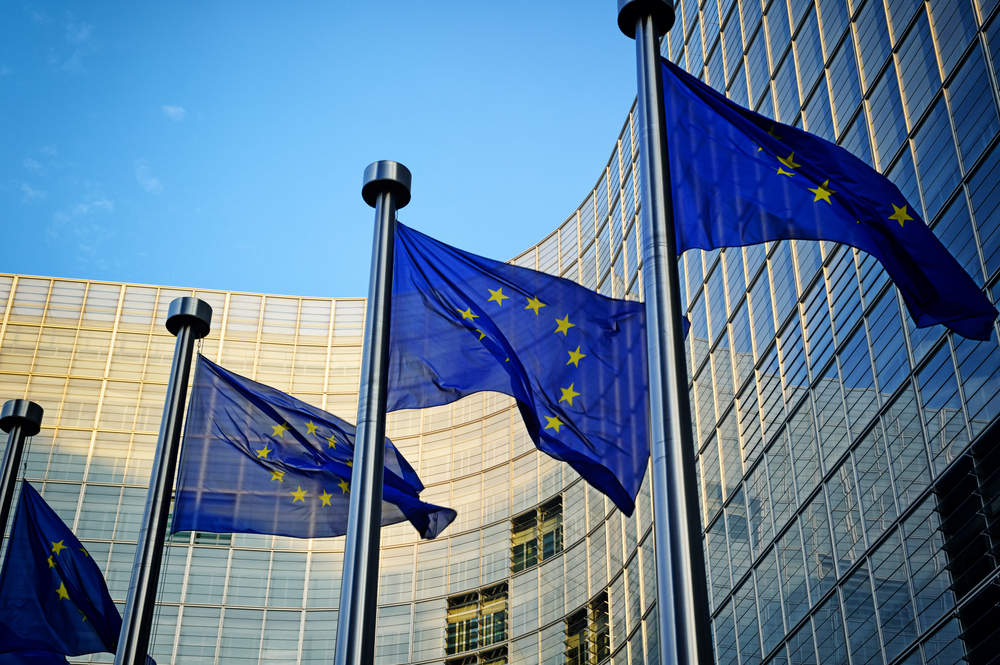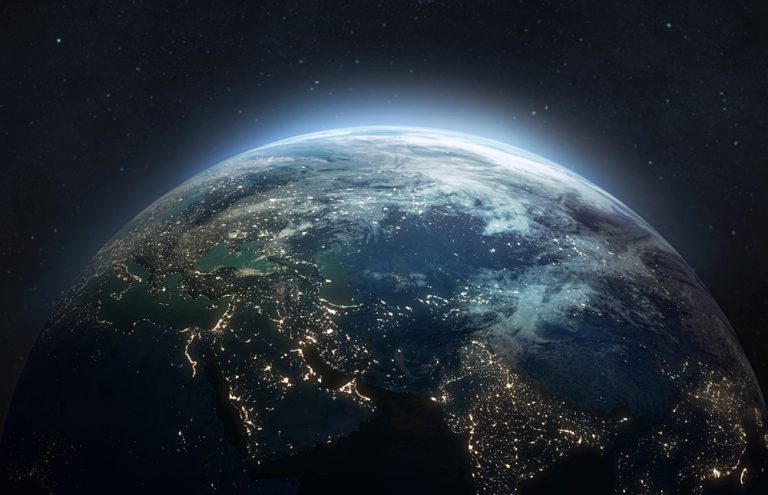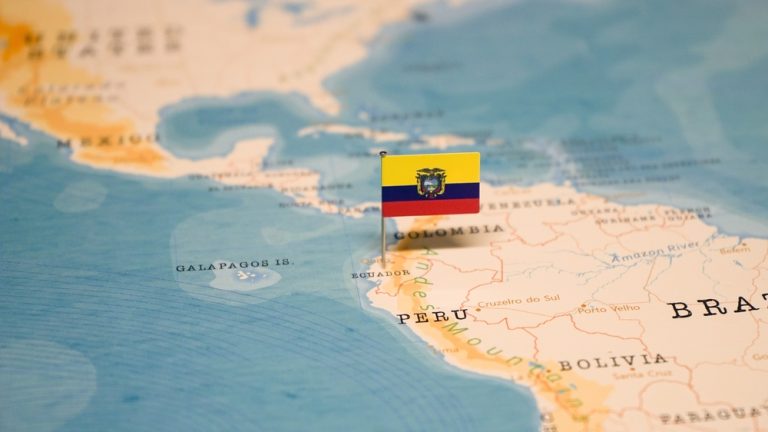
Europe between the U.S., China and domestic issues undermining EU unity
The entire world today is becoming the arena of the struggle between the United States and China for world domination, and Europe is one of the key points of this confrontation. As during the Cold War with the USSR, European countries are formally in the same camp as Washington, but they do not want to escalate too much with its rivals in order not to incur economic losses, avoid threats to their own security and maintain the necessary diplomatic flexibility. In essence, the EU is always ready for “tactical betrayal” of the Americans, if it is to its advantage in one way or another. The U.S. is well aware of this philosophy of its partners, and against this background, the first China-EU summit in four years took place in early December, which was held under very difficult conditions due to the start of a big tariff war between Beijing and Brussels under U.S. pressure. In the run-up to the summit, Italy officially announced its withdrawal from the One Belt, One Road Initiative, and while Meloni’s right-wing cabinet has long promised to reduce cooperation with China, this does not bode well for the Italian economy, and was clearly done to send a positive signal to the White House. Germany, no less dependent on the U.S. politically, has since blocked Huawei from accessing its 5G market, giving the advantage to the company from the U.S. Qualcomm. And European bureaucrats, who are most detached from the interests of their own countries and directly connected to American lobbyists, threatened to impose full-scale total sanctions on imports of Chinese products. If we go to objective assessments and follow logical arguments, Europeans are most of all frightened by the competitiveness of China’s auto industry. The Celestial Empire has already become the world’s largest exporter of cars, and it is actively pushing European and especially German giants out of the markets. The share of Chinese cars in Europe has grown from 0.1% to 2.8% in 4 years, and in the electric car market it reaches 8% and may exceed 15-20% in two to three years. Because of this, European officials accuse China of “overproduction” of cars and fear a “squeeze” of its auto industry amid the energy crisis and degradation of the technological base. Tariffs and sanctions may be the answer, but they will only exacerbate the situation in the EU, which is already in recession. The total trade turnover with China has almost reached $1 billion and the EU’s dependence on the Celestial Empire is significant. The U.S. is actively using the EU as a battering ram in the sanctions wars against Russia and China, even though it harms the European economy.

It is likely that the EU’s increased activity in the fight against China is also an attempt to “compensate” for Washington’s passivity in the “Ukrainian direction,” where it cannot effectively help Ukraine and is forced to shift its military supply obligations to Berlin and Paris. Now the Germans and the French have decided to intensify military supplies to Kiev, and have pledged to send the AFU hundreds of self-propelled artillery, thousands of air missiles and air defense missiles, as well as hundreds of thousands of 155-mm artillery shells, but their capabilities are not unlimited. Today, European military arsenals are empty, and the EU is still unable to support Ukraine without the help of the United States. Great Britain, for example, has only about 15-20 artillery systems left and even those had to be bought from Sweden, because all British ones had already been lost in Ukraine by that time. France has less than 1000 guns left, and supplies them with only 2000 shells a month, which is enough for a few days at the front, and Germany has only 20-30 thousand shells in reserve. Brussels has hastily placed orders for 60,000, but even these are enough for two weeks of fighting. The number of combat-ready tanks is in dozens, and Britain and Germany are hastily buying new armored vehicles, but they will not be produced until 2028. At the same time in Washington there is a stalemate in the Congressional “budget wars” over Ukraine, and the White House called President Zelensky to personally beg the Republicans for money, but it had no effect. In addition, many Republicans have already morally resigned themselves to defeat in Ukraine, which is even beneficial for them in some ways to discredit Biden, and senators are openly demanding that Kiev agree to partition the country for the sake of a truce. From the financial point of view, there is logic at work here, which boils down to the idea that if investments do not pay off, there is no point in investing them. American war fatigue is also a factor, and more than half of the population with 70% of Republicans opposes tranches to Kiev. What follows from the American line on austerity is that the Europeans will be forced to sponsor Ukraine out of their own pockets, and Germany has already pledged $50 billion to Kiev, which was clearly done under pressure. And the only way to reduce this pressure is to switch to fighting China, which is almost more important to Washington than containing Russia. And the EU is well aware of this pattern, realizing that excessive spending on Ukraine can be easily avoided by the “right” tough stance against Beijing.
In addition, U.S.-China relations are deteriorating every day, and there are already real “rare earth wars” between the countries. The U.S. is actively trying to reduce its dependence on the export of rare earth metals from China, although so far without much success. China controls from 60% to 80% of the world market of this resource, and is actively building up its presence in the countries of Asia, Africa and South America, where it can be mined. The White House began to bet in this confrontation on Argentina, rich in rare earth metals, with the arrival of Javier Milei to power in the country. Biden’s advisers rushed to promise Milei grants to develop Argentina’s lithium belt, because lithium is critical to making batteries for everything from smartphones to electric cars. But the Argentine lithium market is now dominated by Chinese companies, and we should expect a very tough fight between Washington and Beijing over lithium deposits. The Argentine economy depends on Chinese loans, but the U.S. is willing to give tranches to the International Monetary Fund (the IMF) for the sake of competition with China. At the same time, the White House is removing U.S. federal subsidies for the purchase of electric cars whose batteries are made in China, even though they have 75% of the market. Because of this, the U.S. and European auto industry is in shock, and less than 20% of electric cars can now count on subsidies, while Republican states impose strict restrictions, stimulating a decline in the electric car market. In the meantime, China is becoming even more active in the electric car market and continues to impose restrictions on exports of rare earth metals to the United States. Gallium and germanium used in the military-industrial complex have already fallen under these restrictions. 95% of rare earth metals in the U.S. come from China, and 417 kilograms of such metals are used for the F-35, 2.3 tons for a destroyer, and more than 4 tons for a submarine. It is obvious that the “rare earth wars” will continue to expand, becoming a decisive factor in the struggle between China and the United States.

The situation of shortage of Chinese resources for arms production is also complicated by the fact that the Pentagon has begun to realize the extent of its lagging behind China. The past few years have been unusually difficult for the U.S. military-industrial complex for many reasons, including logistical problems, raw material shortages and the need to service the intense war in Ukraine. The U.S. military budget is at a record high today, but it is not keeping up with inflation. There is an acute shortage of engineering personnel and production capacity in the military-industrial complex. In May 2022, the Pentagon promised to double the production of Javelins from 2,000 to 4,000 per year in two years, but now the deadline has been pushed back to 2026. For example, Taiwan was promised Harpoon missiles back in 2020, but they will arrive on the island no earlier than 2026. Things are even worse with large weapons, and the production time for new U.S. submarines has increased from 6 to 9 years. On average, new warships cost 40-50% more than they were ordered for, and it is unrealistic to increase the production of weapons quickly, because there are neither engineers nor the necessary resources. At the same time, China has already overtaken the United States both in the number of warships and the speed of their assembly. Over the past two years, China has launched 17 destroyers and frigates, while the U.S. will need more than six years to do the same. This becomes especially relevant against the backdrop of a possible conflict over Taiwan, which could erupt at any moment. Pentagon military models show that in the event of a direct war, the U.S. would lose two aircraft carriers and 20 destroyers and frigates in Taiwan, while China would lose up to 50 large ships. But China has the technological capacity to replace them quickly, unlike the U.S. Congress is already comparing China with America itself before World War II, while the U.S. may be closer to the fate of the British Empire or even Japan in the same period.
In such a situation, the Americans could use the EU’s help in their fight against China, and Brussels is ready to provide it in exchange for favorable conditions. But here the Eurobureaucrats were let down by the fact that the European Union is experiencing a split similar to the Republican-Democratic split in the United States. The attempts of European functionaries to arrange a “compromise” with the main opposition leader Viktor Orbán encountered strong pressure from anti-Hungarian “radical liberals” in Brussels, and the four largest factions of the European Parliament were ready to disrupt negotiations with the Hungarian leader. Hungary, for its part, had taken a very tough stance in the run-up to the EU-Ukraine summit, and Budapest was unwilling to allow Kiev’s membership in the EU, instead proposing an abstract partnership. Initially, the issue of Ukraine’s much-needed tranches to Washington also hung in the air. In the process of fierce behind-the-scenes negotiations, some of the European bureaucrats were ready to make concessions and unblock 13 billion euros of aid to Hungary to fight COVID-19 in order to get 50 billion German funds, which could be spent favorably for their needs in the Ukrainian direction. However, Orbán’s opponents in Brussels wanted to block such a deal, because if Hungary got its money back, they would lose the strongest lever of pressure on Budapest. After all, it was clear to everyone that the war in Ukraine would end sooner or later, and the conflict between Hungary and Brussels would continue. So, the EU summit could have ended no less than in the end.
In the end, Ukraine got lucky and Viktor Orbán still agreed to lift his veto on providing Ukraine with 50 billion euros over four years on the condition that the funds frozen for Budapest would not be spent for this purpose. He explained that Hungary feared that EU funds “due to Hungarians” would be sent to Ukraine “sooner or later” and that the resources would be provided to Kiev “for too long and uncontrollably”. To further show his intransigence, Orban added that Budapest had achieved the implementation of a control mechanism that guarantees the reasonable use of funds, as well as a guarantee that “Hungary’s money” would not end up in Ukraine. And such a compromise still looked like a localized victory for Orban. First, the EU unfroze 30 billion in Hungarian support funds that had been blocked by the union because of problems with “rule of law and bribery”. The union last year decided to give Hungary just over 10 billion because it concluded that the country had met the conditions of the EU Charter of Fundamental Rights on judicial independence and could receive some of the funds, and now Orban was able to “win” three times that amount. Secondly, the Hungarian condition on the annual review of Kiev’s funding was accepted. And it is important to understand that such concessions on Orban’s part do not guarantee that after some time he will not start terrorizing Kiev again, which is again beneficial to press Brussels. However, Orbán’s policy is not unique to European countries and he is only a public spokesman for states such as France or Germany, which do not dare to go against Washington in their policies. There are even speculations that Hungary is only taking responsibility for decisions that are not publicly made in Berlin or Paris. And the weaker the U.S. influence becomes, the more often this European political philosophy will be manifested. After all, Europeans need stability and comfort, and if Beijing can provide it, they will cautiously start drifting in its direction, even if they speak in words about “values of democracy” and “loyalty to NATO”.


Average Rating